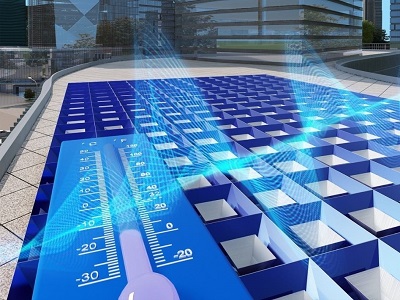- Details
Engineers at Buffalo University (NY) have recently designed a new system which will help to cool buildings in a crowded metropolitan city without consuming electricity. The new method is known as radiative or passive cooling because it does not require batteries or other sources of electricity to initiate cooling.
The system consists of alumina films, which are installed at the bottom of a specially designed solar ‘shelters’ which helps the building to keep cool. The system works in the following way: the films help its surrounding to be cool and absorb heat from the air. The films stay cool as the heat dissipates through thermal radiation, and can then cool down the environment. The innovation is made up of environmentally-friendly technology and will be useful for cities which are trying to deal with global warning issues. The system also has the ability to purposefully direct thermal emissions towards the sky rather than spread the emission in all directions.
- Details
In July 2019, the Georgian National Energy and Water Supply Regulatory Commission (GNERC) introduced changes to electricity supply and consumption rules and procedures, among which the prices and terms of connection of a new customer to the distribution network.
Customers are considered as new if they have never been connected to the distribution network before and electricity has never been supplied to them.
According to the decree of GNERC, 2008 (18/09/2008, decree #20) the fee of connecting new customers to the electricity distribution network was identical for each municipality, and was in the range of 400-416,000 GEL. Based on the changes in the decree, the connection fee for a new customer is defined in the following way: for the self-governing cities (Tbilisi, Kutaisi, Batumi, Poti and Rustavi) the fee has increased and varies between 600-749,000 GEL; for other municipalities, meanwhile, the fee range is 400–416,000 GEL. The fee depends on the capacity of the system (kWh). In the event that two or more new customers are connected simultaneously, 100 GEL will be added to the standard fee, which covers the costs of setting an additional metering node for additional customers.












